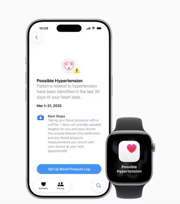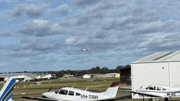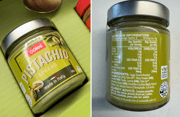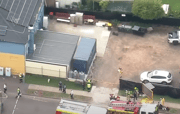'It’s ridiculous': Big retailer caught selling dangerous item
By
Maan
- Replies 7
What happens when a major retailer makes a mistake that could harm both the environment and the public?
What seemed like a minor oversight quickly became a significant issue, sparking backlash and raising questions about corporate responsibility.
This incident has not only ignited concerns about safety standards but also highlighted the broader implications for wildlife and consumer trust.
BIG W quickly responded and apologised after mistakenly mailing a banned product to a customer, sparking concerns about wildlife safety.
Inside the package was a 12-metre roll of fruit tree netting, banned in Victoria due to its dangerous, large holes that often ensnare and kill wildlife like birds, bats, snakes, and lizards.
Although the retailer’s website did note that the product ‘may be illegal in Victoria’, a ‘jumbo’ bundle of the netting was shipped to Lawrence Pope in Melbourne
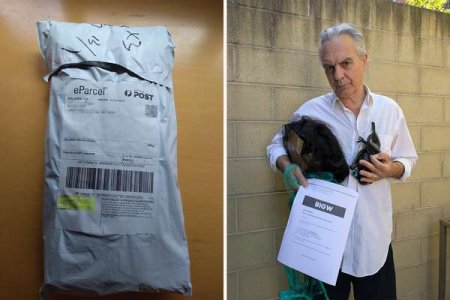
The netting featured mesh holes that were three times larger than the legal size limit of 5mm x 5mm.
Pope, a rescue volunteer in Melbourne, had ordered the item to investigate whether the product was being sold in violation of the laws in his state.
As part of a broader project, he wanted to check compliance with restrictions on netting sales.
‘Corporations know it’s banned in Victoria. But looking wider than that, they know it’s dangerous because it traps and kills wildlife right across Australia. It’s deadly wherever it’s installed, so why do they deem it necessary to sell it?’ Pope said.
BIG W’s website had a warning about the legality of the product in Victoria.
However, it was still shipped from New South Wales, where the product remained legal.
In a statement, BIG W described the sale as an ‘isolated incident’.
The retailer also reaffirmed its commitment to a ‘safe and compliant online shopping experience’.
It added: ‘Following guidance from Victoria’s Department of Environment, the product has now been removed from sale. We apologise for any concern caused.’
Pope, who works with the rescue group Friends of Bats and Bushcare, has seen firsthand the tragic effects of illegal netting on wildlife.
He shared a heartbreaking image of a tiny bat named Starlight, found clinging to its dead mother after she got tangled in non-compliant netting sold by another retailer.
Pope’s concerns are not isolated. eBay Australia had also shipped banned netting to Pope’s Victorian address after he purchased a roll of netting with mesh holes that exceeded the legal size limit.
‘I received a bundle of netting with 15 mm x 15 mm holes, and eBay even emailed me suggesting I buy more netting with 13 mm x 18 mm holes,’ Pope said.
Despite eBay’s claims of proactive filters to block such illegal sales, Pope received the product, and the company suggested further purchases of banned items.
‘Items reported via the portal are removed within hours,’ an eBay spokesperson said, confirming that the company’s portal is used by both state and federal agencies to remove dangerous products.
In Victoria, gardeners who use non-compliant netting face fines of $395, with sellers risking penalties of up to $791.
If prosecuted, the fine can reach $2,964.
Pope has made multiple reports to local authorities about illegal netting and glue traps in Melbourne, but he claims little action was taken until he intervened personally to get products removed.
The Department of Environment, Energy and Climate Action (DEECA) confirmed that it took public reports of Big W’s illegal sale seriously and had urged people to report breaches through their hotline.
BIG W was contacted, and the product was removed.
However, it remains unclear what action was taken against sellers on eBay.
Pope has long advocated for alternatives to harmful fruit tree netting.
He encourages retailers to stop selling dangerous products and urges them to offer netting with smaller holes that don’t pose a risk to wildlife.
‘These deaths and injuries are completely preventable, and those that continue to sell products trapping and killing Australian wildlife are creating orphans and endless amounts of work for unpaid volunteers,’ he said.
Pope emphasised that the sale of safe netting could be just as profitable for retailers.
‘The bizarre thing is, they can make just as much money selling safe netting. It’s ridiculous, these products are just not fit for purpose in Australia.
Lots of retailers do the right thing, so why are cowboys allowed to behave illegally and irresponsibly and not be properly punished?’

Should stricter penalties be imposed to hold these companies accountable? Is it time for the public to take a stronger stand?
Share your thoughts in the comments below!
What seemed like a minor oversight quickly became a significant issue, sparking backlash and raising questions about corporate responsibility.
This incident has not only ignited concerns about safety standards but also highlighted the broader implications for wildlife and consumer trust.
BIG W quickly responded and apologised after mistakenly mailing a banned product to a customer, sparking concerns about wildlife safety.
Inside the package was a 12-metre roll of fruit tree netting, banned in Victoria due to its dangerous, large holes that often ensnare and kill wildlife like birds, bats, snakes, and lizards.
Although the retailer’s website did note that the product ‘may be illegal in Victoria’, a ‘jumbo’ bundle of the netting was shipped to Lawrence Pope in Melbourne

BIG W apologises after shipping banned netting to Melbourne. Image source: Facebook/Friends of Bats and Bushcare Inc.
The netting featured mesh holes that were three times larger than the legal size limit of 5mm x 5mm.
Pope, a rescue volunteer in Melbourne, had ordered the item to investigate whether the product was being sold in violation of the laws in his state.
As part of a broader project, he wanted to check compliance with restrictions on netting sales.
‘Corporations know it’s banned in Victoria. But looking wider than that, they know it’s dangerous because it traps and kills wildlife right across Australia. It’s deadly wherever it’s installed, so why do they deem it necessary to sell it?’ Pope said.
BIG W’s website had a warning about the legality of the product in Victoria.
However, it was still shipped from New South Wales, where the product remained legal.
In a statement, BIG W described the sale as an ‘isolated incident’.
The retailer also reaffirmed its commitment to a ‘safe and compliant online shopping experience’.
It added: ‘Following guidance from Victoria’s Department of Environment, the product has now been removed from sale. We apologise for any concern caused.’
Pope, who works with the rescue group Friends of Bats and Bushcare, has seen firsthand the tragic effects of illegal netting on wildlife.
He shared a heartbreaking image of a tiny bat named Starlight, found clinging to its dead mother after she got tangled in non-compliant netting sold by another retailer.
Pope’s concerns are not isolated. eBay Australia had also shipped banned netting to Pope’s Victorian address after he purchased a roll of netting with mesh holes that exceeded the legal size limit.
‘I received a bundle of netting with 15 mm x 15 mm holes, and eBay even emailed me suggesting I buy more netting with 13 mm x 18 mm holes,’ Pope said.
Despite eBay’s claims of proactive filters to block such illegal sales, Pope received the product, and the company suggested further purchases of banned items.
‘Items reported via the portal are removed within hours,’ an eBay spokesperson said, confirming that the company’s portal is used by both state and federal agencies to remove dangerous products.
In Victoria, gardeners who use non-compliant netting face fines of $395, with sellers risking penalties of up to $791.
If prosecuted, the fine can reach $2,964.
Pope has made multiple reports to local authorities about illegal netting and glue traps in Melbourne, but he claims little action was taken until he intervened personally to get products removed.
The Department of Environment, Energy and Climate Action (DEECA) confirmed that it took public reports of Big W’s illegal sale seriously and had urged people to report breaches through their hotline.
BIG W was contacted, and the product was removed.
However, it remains unclear what action was taken against sellers on eBay.
Pope has long advocated for alternatives to harmful fruit tree netting.
He encourages retailers to stop selling dangerous products and urges them to offer netting with smaller holes that don’t pose a risk to wildlife.
‘These deaths and injuries are completely preventable, and those that continue to sell products trapping and killing Australian wildlife are creating orphans and endless amounts of work for unpaid volunteers,’ he said.
Pope emphasised that the sale of safe netting could be just as profitable for retailers.
‘The bizarre thing is, they can make just as much money selling safe netting. It’s ridiculous, these products are just not fit for purpose in Australia.
Lots of retailers do the right thing, so why are cowboys allowed to behave illegally and irresponsibly and not be properly punished?’
Key Takeaways
- BIG W mistakenly shipped banned fruit tree netting to a customer in Victoria, despite a warning on its website about the product's legal status in the state.
- The netting, which features large mesh holes that endanger wildlife, was sent to Lawrence Pope, a Melbourne-based rescue volunteer, who ordered it to investigate law compliance.
- eBay Australia also shipped similar banned netting to Pope, despite claims of proactive filters to block illegal sales, leading to further concerns about marketplace enforcement.
- Pope advocates for retailers to offer safer alternatives to harmful netting, stressing that the sale of compliant products could be just as profitable and prevent needless wildlife deaths.
Should stricter penalties be imposed to hold these companies accountable? Is it time for the public to take a stronger stand?
Share your thoughts in the comments below!
Last edited:



